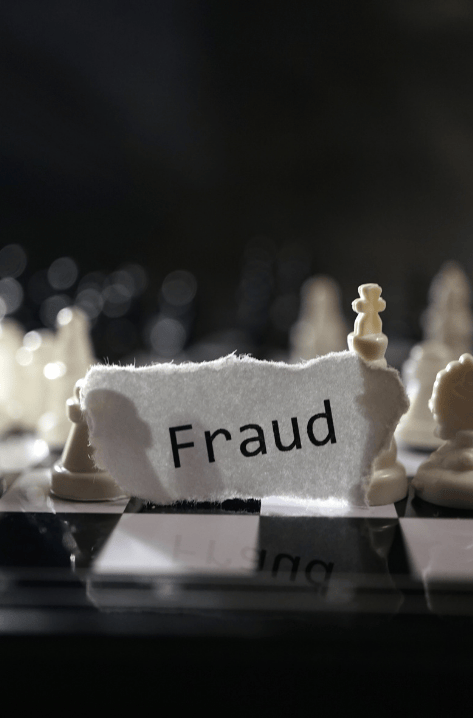Ensuring Fairness and Openness in Digital Services
European Commission Designates Gatekeepers Under Digital Markets Act
26.09.2023
As competition authorities in the European Union persist in their commitment to foster fair and transparent digital markets while preventing major tech companies from imposing unfair terms on businesses and end-users, it has become increasingly evident that the legal complexities and the lengthy investigative processes often resulted in sanctions arriving too late to effectively address the harm already done. This led to a fundamental question: Could these measures genuinely and promptly restore healthy competition?
In line with the principle "prevention is better than cure" the Digital Markets Act (“DMA”) was introduced in December 2020. This legislative initiative proposed by the Commission was aimed at proactively preventing the emergence of anti-competitive effects in the digital market.
Fast Forward to September 6, 2023, and the European Commission (“Commission”) took an important step in regulating the digital environment by designating[1] six major technology companies as “gatekeepers” under the DMA.
Among the inaugural gatekeeper designations are Alphabet, Amazon, Apple, ByteDance, Meta and Microsoft.
They are identified by their significant impact on the internal market, serving as vital gateways for business users to reach their end consumers, and their current or anticipated establishment of an entrenched and enduring position.[2]
Designated Core Platform Services
With its decision, Commission has also identified a total of twenty-two core platform services provided by these gatekeepers. These designated core platform services encompass:
- Four social networks: TikTok, Facebook, Instagram, LinkedIn
- Six intermediation services: Google Maps, Google Play, Google Shopping, Amazon Marketplace, iOS App Store, Meta Marketplace
- Three advertising delivery systems: Google, Amazon, and Meta
- Two web browsers: Chrome and Safari
- Three operating systems: Google Android, iOS, Windows PC OS
- Two number-independent interpersonal communication services: WhatsApp and Facebook Messenger)
- One search engine: Google
- One video-sharing platform: YouTube
This comprehensive approach ensures that the DMA addresses a wide spectrum of services provided by these gatekeepers in the digital landscape.
Obligations Specified in the DMA
Following their designation, gatekeepers have six months (i.e. until March 2024) to comply with the full set of obligations under the DMA, as well as to provide a compliance report in which they detail what solutions they have put into place. In addition, some of the obligations stipulated for gatekeepers in the DMA have started to be implemented immediately after the Commission's designation decision, which includes informing Commission of any intended concentration[3].
The DMA outlines obligations for gatekeepers in their daily operations, including the following.[4]:
- Ensure that end users have the ability to easily uninstall pre-installed applications or modify default settings on operating systems, virtual assistants, or web browsers that guide them towards the gatekeeper's products and services. Additionally, provide options for users to make informed choices about essential services.
- Permit end users to install third-party applications or app stores that are compatible with or can work seamlessly with the gatekeeper's operating system.
- Allow third-party entities to engage in interoperability with the gatekeeper's own services.
- Grant companies advertising on the gatekeeper's platform access to the tools for measuring performance and the necessary information needed by advertisers and publishers to independently verify the effectiveness of their advertisements hosted by the gatekeeper.
- Allow business users to market their offerings and establish contracts with their customers independently outside of the gatekeeper's platform.
- Provide business users with access to the data generated by their activities on the gatekeeper's platform.
- Prohibit the use of business users' data when gatekeepers engage in direct competition with them on their own platform.
- Prohibit giving preferential treatment in rankings and visibility to the gatekeeper's own products or services compared to those offered by third parties.
Effects of the DMA on Users of Core Platform Services
Users of the gatekeepers’ core platform services may experience various effects due to the DMA and the related regulations imposed on these gatekeepers. Here are some ways in which users may be impacted:
- Increased Choice and Control: Users may benefit from increased choice and control over their digital experiences. The DMA requires gatekeepers to allow users to easily uninstall pre-installed apps, change default settings, and have access to alternative services. This gives users more options to customize their devices and software to suit their preferences.
- Access to Third-Party Apps: Users may have the ability to install third-party apps and app stores on their devices, which can lead to a broader range of applications and services being available to them.
- Improved Interoperability: Gatekeepers are required to allow third parties to interoperate with their services. This can result in better compatibility between different services and devices, making it easier for users to switch between platforms or use complementary services.
- Protection Against Unfair Practices: Users are protected against unfair practices by gatekeepers, such as self-preferencing or anticompetitive behavior. This assurance enables users to trust that the services they rely on are not manipulated for the gatekeeper's benefit.
Implications of Non-Compliance with DMA
Non-compliance with DMA requirements carries substantial consequences. If a gatekeeper fails to meet the requirements outlined in the DMA, the Commission has the authority to charge fines of up to 10% of the company's global revenue. In cases of repeated violations, this fine may escalate to 20%. Furthermore, in situations involving systematic violations, the Commission is also empowered to implement further measures, including compelling a gatekeeper to divest a portion of its business or prohibiting the gatekeeper from acquiring additional services connected to the persistent non-compliance.
Exploring the potential adverse outcomes stemming from non-compliance with DMA regulations or failing to meet DMA requirements extends beyond mere financial penalties. It encompasses a range of difficulties, including harm to reputation, significant time and resource investment, and more. These consequences, as briefly outlined below, can profoundly affect the companies designated as gatekeepers, emphasizing the need to fully grasp the broader implications of these regulations.
- Reputational Damage: Failure to comply with DMA obligations can harm a company's image. Negative publicity arising from legal disputes or anticompetitive actions can erode public trust and consumer confidence.
- Impact on Consumer Choice: DMA compliance seeks to enhance consumer choices and competition. Non-compliance may lead to a decrease in user trust and interest in gatekeeper services, affecting user numbers and engagement.
- Operational Interruptions: Aligning non-compliant operations with DMA requirements can disrupt a company's workflow, potentially leading to temporary inefficiencies affecting day-to-day business operations.
- Market Uncertainty: Non-compliance introduces uncertainty into a company's market position. Ambiguous regulatory status can discourage investors, partners, and potential mergers or acquisitions.
Interplay Between Digital Services Act and DMA
While the DMA addresses risks to the openness and fairness in digital markets in the presence of gatekeepers, the Digital Services Act (“DSA”) seeks to rebalance the responsibilities of users, platforms, and public authorities.
For a more in-depth exploration of the DSA’s implications, we invite you to read our article titled “The EU's Digital Services Act: How Will It Impact Marketplaces”.
Conclusion
In conclusion, the designation of Big Tech companies as gatekeepers under the DMA represents a significant milestone in the regulation of the digital environment in Europe. These gatekeepers now face a series of obligations aimed at fostering fair competition, enhancing user choice, and preventing anti-competitive practices. The DMA introduces a comprehensive framework that not only impacts gatekeepers but also holds the potential to benefit users of core platform services by providing increased choice, interoperability, and protection against unfair practices. As we delve deeper into the details of the DMA, it becomes clear that its implementation will reshape the digital landscape, making it essential for both gatekeepers and third-party users to understand and adapt to these new obligations and procedures.
References
Braeken , B., Versteeg , J., & Hieselaar, T. (2021, June 30). An overview of Big Tech cases leading up to the Digital Markets Act (DMA). Retrieved from bureau Brandeis: https://bureaubrandeis.com/an-overview-of-big-tech-cases-leading-up-to-the-digital-markets-act-dma/?lang=en
Digital Markets Act: Commission designates six gatekeepers. (2023, September 6). Retrieved from https://ec.europa.eu/commission/presscorner/detail/en/ip_23_4328
Hancock, E. (2023, September 6). EU cracks down on 6 Big Tech giants. Retrieved from https://www.politico.eu/article/eu-cracks-down-on-six-big-tech-giants/
Lomas, N. (2023, July 4). ‘GAFAM’ tech giants, ByteDance and Samsung expect to face EU’s rebooted antitrust regime. Retrieved from https://techcrunch.com/2023/07/04/dma-seven/
Lomas, N. (2023, September 6). EU confirms six (mostly US) tech giants are subject to Digital Markets Act. Retrieved from https://techcrunch.com/2023/09/06/dma-gatekeepers-named/
Questions and Answers: Digital Markets Act: Ensuring fair and open digital markets. (2023, September 6). Retrieved from https://ec.europa.eu/commission/presscorner/detail/en/qanda_20_2349
Regulation (EU) 2022/1925 of the European Parliament and of The Council. (2022, October 12). Retrieved from https://eur-lex.europa.eu/legal-content/EN/TXT/PDF/?uri=CELEX:32022R1925
[1] (Digital Markets Act: Commission designates six gatekeepers, 2023)
[2] To be designated as a gatekeeper, companies must meet specific criteria established by the DMA. These criteria are quantitative and qualitative, reflecting the company's size, control over vital gateways for business users, and an entrenched position. For instance, achieving an annual turnover in the European Economic Area (EEA) equal to or above €7.5 billion in each of the last three financial years is one such quantitative threshold. The DMA enables the Commission to conduct a detailed market investigation and designate a company as a gatekeeper based on a qualitative assessment, even if it doesn't meet quantitative thresholds.
[3] Article 14 of the DMA
[4] (Questions and Answers: Digital Markets Act: Ensuring fair and open digital markets, 2023)



